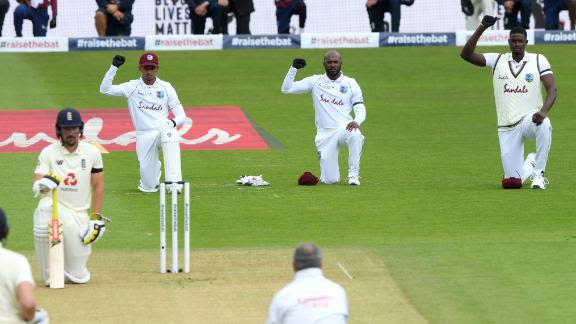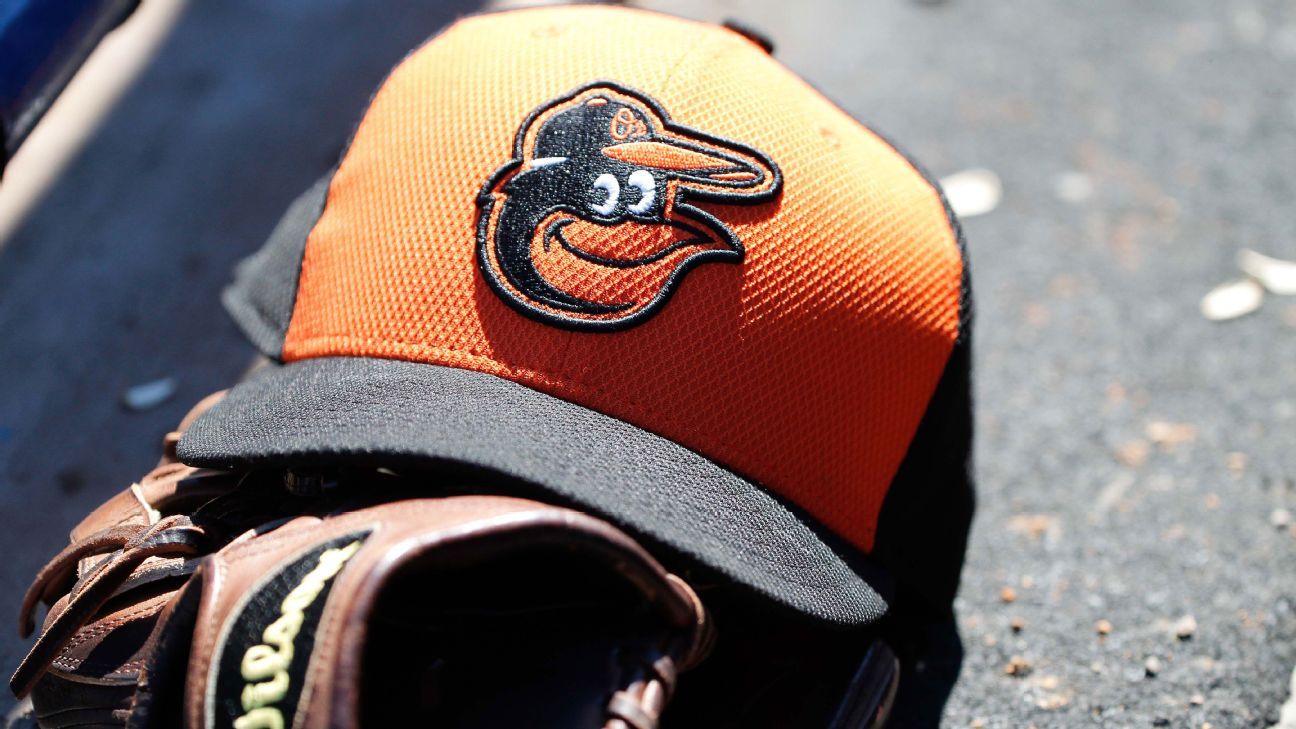
England 35 for 1 v West Indies
After months of pain-staking preparation, cricket's long-awaited return was held up not by bio-security protocols, the addition of saliva to a ball or a shortage of hand sanitiser - but by the weather. Perhaps it was inevitable after months of sunshine in the UK that rain and bad light would play their all-too-familiar parts, but that did little to lessen the disappointment as only 17.4 overs were possible at the Ageas Bowl.
During the three small windows of play possible, England dug in after stand-in captain Ben Stokes won the toss and chose to bat, as Rory Burns and Joe Denly led the recovery after the loss of Dom Sibley only 10 balls into the innings. It looked like a good toss to lose, with overcast skies offering assistance for seamers but the pitch seemingly slowish underneath a firmer top.
Jason Holder said he was "not too disheartened" to be bowling first and asked for "discipline" from his bowlers, after opting to pick an extra batsman in Jermaine Blackwood and fielding four frontline quicks including himself. So, 117 days after the last ball in international cricket - a Pat Cummins bouncer which Trent Boult slashed at to offer a steepling return catch in Sydney - Burns defended Kemar Roach into the off side to get proceedings underway, but in all the teams managed just 82 minutes of action.
ALSO READ: Players, officials take a knee in moving tribute
The delayed start offered a chance for Sky - whose £1.1 billion, five-year broadcast deal had given the ECB such an imperative to get this series on - to show off all the new toys in their coverage. Those included a new Big Brother-style diary room for mid-match player interactions and the robot that filled in for a presenter at the toss, but the build-up was primarily dominated by more important issues.
Michael Holding and Ebony Rainford-Brent spoke candidly and openly about their experiences of racism, and players and staff from both teams took a knee before Kemar Roach's first ball as a sign of solidarity with the Black Lives Matter movement. England wore the names of key workers on their training shirts, and observed a minute's silence to remember both those who died during the pandemic and the late Sir Everton Weekes.
If there were any concerns that the unprecedented circumstances might in some way distract players from the task at hand, West Indies' opening bowlers made sure that England's top order were unable to lose focus. Roach started immaculately, finding hints of movement, while in his first over Shannon Gabriel jagged a length ball in off the seam which Sibley ill-advisedly left alone, turning round to see his off stump pegged back.
Gabriel's opening burst was slightly wayward at times, but despite his status as a late addition to the squad after being asked to prove he had overcome his ankle injury, he regularly hit 90mph/145kph and found late movement as the ball passed the bat. He nearly accounted for Denly in his fifth over, who edged him with hard hands through the vacant fourth-slip region for four, while Roach nagged away from the Hotel End, landing the ball on a sixpence in the off-stump channel.
Burns and Denly found scoring slightly easier against Alzarri Joseph - included ahead of Rahkeem Cornwall as West Indies decided to back Roston Chase as their only main spin option - before bad light intervened around teatime. A combination of drizzle and dark cloud kept the teams off the pitch until the umpires eventually decided they had seen enough just before 6.15pm.
The main talking point overnight had been Stuart Broad's omission from the England team, which Ben Stokes admitted had been "a very tough decision" as he opted to partner Mark Wood with Jofra Archer for the first time in Test cricket. Broad and Chris Woakes, the other man to miss out from England's 13-man squad, "took it like champions" according to Stokes, presumably in the knowledge that an opportunity would arise later in the series. James Anderson described England's schedule - which features six Tests in the space of seven weeks - as "gruelling", and rotation will be an inevitable feature of the summer.
There was almost a breach of social-distancing protocols as soon as the coin had landed at the toss when Stokes' attempted fist bump was met by Holder's handshake, but with so little time in the middle it was hard to draw any conclusions about the new normal. The broadcasters pumped in a low-level hum of crowd noise, which was conspicuous only when it failed to turn into a ripple of polite applause after each boundary, but the ICC's ban on the use of saliva may only be noticed when the ball gets older.















 Phone: (800) 737. 6040
Phone: (800) 737. 6040 Fax: (800) 825 5558
Fax: (800) 825 5558 Website:
Website:  Email:
Email: 






